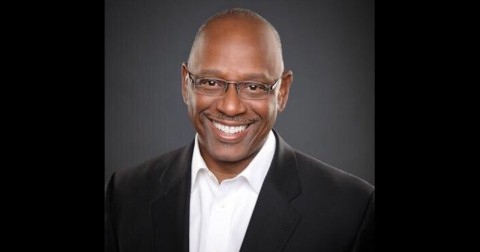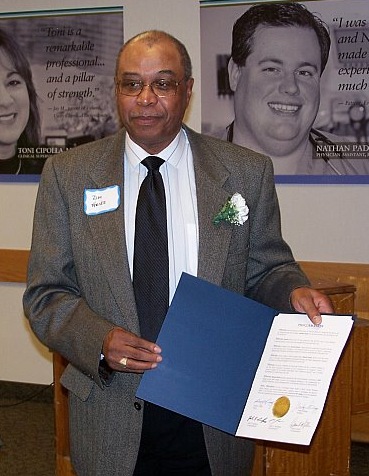
Southwest Tribune: As a police officer in Rochester, New York, you are consider an urban legend in regards to your trustful relationship with the community.
CNN Law Enforcement Analyst Cedric Alexander:
My thing has always been to treat people with dignity and respect regardless of who they are. That is the way I was raised and that is how I conducted myself as a young police officer years ago back in Tallahassee, Orlando and Miami. When I became deputy chief in Rochester in 2002, I conducted myself the same way as well. And even when I became chief and to this day. But the point is that you treat people with dignity and respect. Because the only thing that you have out there when you talk to people and meet with people is your credibility.
The state of New York or any state can give you a gun and a badge and authority to go out and make an arrest but it is the people in the community that gives you, your legitimacy. If they do not see you as trustworthy then you are going to have a real challenging time doing the job that police officers do. So that is important! I was also a no-nonsense kind of guy and it was the same way in terms and how I manage my administration.
We had to get things done I was very task oriented. Everybody had to assume their responsibility on my executive staff. And if you cannot get it done, then I am going to find somebody that can get it done. I do not carry dead weight around. Everybody got to understand the mission and go beyond verbally stating I am on board. They have to consistently demonstrate they are on board with what we are trying to do.
It is always about changing the culture of the organization when you go inside of it. And you have to have the ability and talent to do that and there are not that many people who have the ability to change culture. You can write policies all day long. Policies get eaten up for lunch by culture, so you got to go in and be able to change that culture. I can tell you my experience in Rochester, one I still hold dearly to my heart.
You can go back and ask the former union president during my tenue as chief, where there was a period when officers were not filing grievances at all because they were satisfied with the way the department was going and the things that they were doing. And there was a point where my internal affairs head came to me and said, chief nobody in the community is filing internal affairs complaints. Those were signals to us that we were doing things right internally and externally. But I think it certainly had a lot to do with the way we manage our day-to-day operation. Our expectations and what we role model. And my attitude is based on not only what I say but what I do, my tenor, my body language. You cannot talk out both sides of your mouth. When you say something, you got to mean it!
Southwest Tribune: Will the George Floyd Verdict be enough to bring forth sweeping changes in terms of reforming some of the laws that make it almost impossible at time to hold officers accountable for using unnecessary forceful tactics outside their scope of training?
Cedric Alexander:
The verdict in itself is not going to change anything. We are going to have to come to terms with that. It is a step in the direction we certainly need to go with those that were egregious in their actions. But George Floyd was an easy case. The whole world watched a man kill a man right in front of us, but it is the cases that are not so clear cut where people have to have the same level of confidence in those investigations and trials that come to bear. We got a lot of work to do. What we saw after the verdict was not people celebrating but people who were angry and they were able to release some of that anger, sadness and depression for a moment. But understanding when we all woke up the next morning we are right back in a place where we have to keep our foot on the gas around police reform in this country.
Southwest Tribune: Rochester is having a spike in homicides (21) that is threatening to eclipse last year’s total of 51. Taking away from your experience as a top officer here in Rochester, what do you think is happening that is causing the uptick in homicides?
Cedric Alexander:
We have to take into consideration that Rochester is no different from any other American city. What we will see in violence crime is that they will have their years going up and they will have those years going down. The volatility of crime and how it is carried out is going to be different in many cases. It becomes important to recognize when violent crimes go down. We do not really know why during those years when crime goes up. Now everything of course gets blamed on Covid. Crime rate is up because of Covid but what is going to happen when Covid is gone and crime rate goes up? We are always going to have these up and down years. There are so many volatility and variables that are involved when our numbers go up and go down.
But here’s what we do know and this is beyond police. When building strong communities, where people have jobs and decent housing and people are not suffering from lead poison and mental health individuals are getting their needs met. When we are able to deal with these social issues that impact our community so deeply, you are going to see a decrease in crime. But until we address those issues the rate is going to fluctuate up and down. I have always said as chief I never like to take credit when crime is down because just as sure as it is down it is going to go back up and it is not going to have anything to do necessarily with what you do.
Southwest Tribune: CBS News aired a segment that featured the leader of Oath Keepers, which is a White Supremacist Group who stated his organization are comprised of police officers and former and active people serving in the military who assist them with militia training. How do we respond to this?
Cedric Alexander:
The F.B.I. have been saying for years that this country needs to be aware of that there was an uptick in the potential surge of white supremacists going inside of our military and inside our police departments. We do not know what the numbers are quite frankly but certainly when we see images that we saw on January 6, of off-duty police officers from across the country and even some that were retired and retired military service men and women. We saw them enter our halls of democracy and violate federal laws. They attacked our U.S. Capitol and associated themselves with white wing hate groups. So, it certainly is a concern for the American people and it should be. The leaders of every city and community across this country has a responsibility when they recruit to go beyond the basics of knowing someone driving record and history. They are some important things but we have to dig deeper into who they are. We got to go into social media platforms and see who they are associated with and aligned with. We got to go deeper into the community where they have worked. The military is doing these things at a deeper level and the same thing has to happen to policing across this country.
Southwest Tribune: What would you like to say to your old community that you have passionately served in such important capacities?
Cedric Alexander
Rochester is a wonderful community. It is a beautiful community. It is a community I have been affiliated with since I came to University of Rochester to train as a psychologist in 1997. I work there as a psychologist, as deputy chief, chief of police and recently two and a half years ago, I left there as deputy mayor. So, I have a long history. I know that community. It is a community of wonderful people. Despite what the city is going through at all the levels, I truly think the community is going to get through it. The people in the community have to be fully engaged. You have to take part in your community. You got to go to the council meetings, the community meetings and meet with your police executives. You got to hold everyone accountable even your mayor, council members and your state representatives. Everyone got to have a level of accountability if they want your vote. We all as community members all have to come together and figure out what it is that is best for our community. Rochester is a great community. I encourage people to keep their heads up high. I love everybody in that community. This is a community that is going to get through this but they have to get through it together. This is a walk where they have to walk through it together.
About Dr. Cedric Alexander
Dr. Alexander has served as the Federal Security Director for the Transportation Security Administration, a division of the United States Department of Homeland Security, at Dallas/Fort Worth International Airport. His responsibilities included the coordination and oversight of all security and regulatory actions. He served as Deputy Commissioner of the New York State Division of Criminal Justice Services; Chief of Police in the Rochester Police Department; and held several leadership roles at the University of Rochester Department of Psychiatry in New York. Dr. Alexander began his law enforcement career in 1977 and was a law enforcement officer in Florida for 15 years.
Formerly Chief of Police for DeKalb County, he was responsible for policy development, control, supervision, and program implementation. With a reputation for being honest, reliable, and fair, Dr. Alexander began the work of stabilizing a department beset with a tradition of misconduct and mistrust. He moved swiftly with making adjustments to realign the Police Department with its intended purpose, to serve the people by reducing fear and enforcing the laws while preserving the peace and safety of the county.
Dr. Alexander has appeared on national media networks to provide comment on police-community relations and as a CNN law enforcement analyst has written editorials including “How to Build a Sensitive Cop;” “Police and Communities of Color Need to Build Trust;” and “Attacks on Police are an Attack on Community.” He has also served as Deputy Commissioner of the New York State Division of Criminal Justice Services, and as an assistant professor at the University of Rochester Department of Psychiatry. He is a former National President for the National Organization of Black Law Enforcement Executives (NOBLE). He has lectured on police stress and burnout, and currently trains on topics of management and leadership, centered around 21st Century Policing.
Article by: Author and Journalist Rodney Brown, executive director of Brown Publishing LLC and Southwest Tribune Newspaper (www.drfreddiethomas.com)





